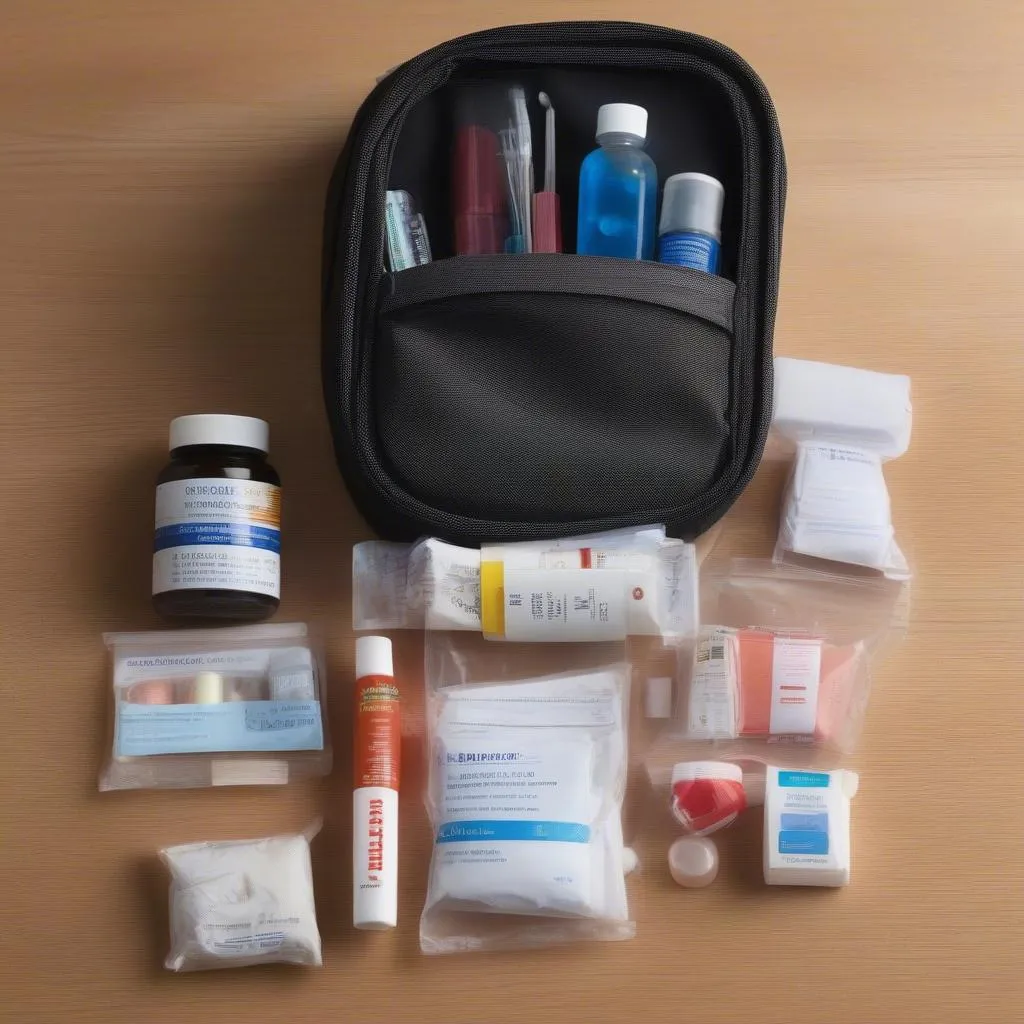Remember that time you planned a dream vacation, booked the perfect itinerary, only to be struck with worry about managing your medications abroad? We’ve all been there. Whether you’re headed to the bustling streets of Bangkok or the serene landscapes of Iceland, traveling with medications requires some extra planning. But don’t fret! This guide will equip you with everything you need to know for a stress-free journey.
Understanding the Importance of Proper Medication Management While Traveling
Traveling often disrupts our routines, and this can impact how we manage our health. Different time zones, climates, and even cuisines can affect medication effectiveness and storage requirements.
As Dr. Jane Miller, author of “The Healthy Traveler’s Guide”, aptly puts it, “Just as you wouldn’t leave home without your passport, you shouldn’t embark on a journey without your essential medications properly stored and documented.”
Essential Steps for Traveling with Medications
Consult Your Doctor and Pharmacist
Before you even start packing your suitcase, schedule a visit with your doctor and pharmacist. They can advise you on:
- Medication quantities: Ensure you have enough medication to last your entire trip, plus some extra in case of unexpected delays.
- Potential drug interactions: Discuss any over-the-counter medications, vitamins, or supplements you plan to take while traveling, as they might interact with your prescribed medications.
- Required vaccinations or preventative medications: Depending on your destination, you might need specific vaccines or medications to prevent illnesses like malaria or traveler’s diarrhea.
Packing Your Medications: Tips and Tricks
- Keep medications in their original packaging: This helps with identification and prevents any confusion with customs officials.
- Pack a separate carry-on bag for medications: This ensures easy access during flights and prevents damage or loss if your checked luggage gets misplaced.
- Carry a copy of your prescriptions: Keep a list of all your medications, dosages, and your doctor’s contact information readily available.
- Consider a medication travel case: These handy cases come in various sizes and can help organize your pills and keep them secure.
For more detailed packing tips, check out our comprehensive guide on how to pack medications for air travel.
Navigating Airport Security with Medications
- Declare your medications: Inform airport security personnel that you are carrying medications, especially liquids exceeding the standard airline limits.
- Carry supporting documentation: Having your prescriptions readily available can expedite the security check process.
- Familiarize yourself with TSA guidelines: Stay updated on the Transportation Security Administration’s regulations for traveling with medications to ensure a smooth experience.
Managing Medications at Your Destination
- Store medications appropriately: Be mindful of temperature fluctuations and humidity. If your medications require refrigeration, inquire about storage options at your hotel or accommodation.
- Maintain your medication schedule: Use a travel alarm clock or mobile app to stay on track with your medication regimen, especially when dealing with time zone changes.
- Dispose of medications responsibly: If you have leftover medications, inquire about proper disposal methods at your hotel or a local pharmacy.
For travelers with medications that require refrigeration, we have a dedicated guide on [how to travel with meds that need to be refrigerated](https://travelcar.edu.vn/how-to-travel-with-meds-that need-to-be-refrigerated/).
Additional Tips for a Worry-Free Trip
- Research your destination’s laws: Some countries have strict regulations regarding specific medications. Make sure you are aware of these regulations before you travel.
- Consider travel insurance: A comprehensive travel insurance plan can provide coverage for medical emergencies, including those related to pre-existing conditions.
- Pack a small first-aid kit: Include essentials like bandages, pain relievers, antiseptic wipes, and any other items you might need for minor ailments.
 Travel Medication Kit
Travel Medication Kit